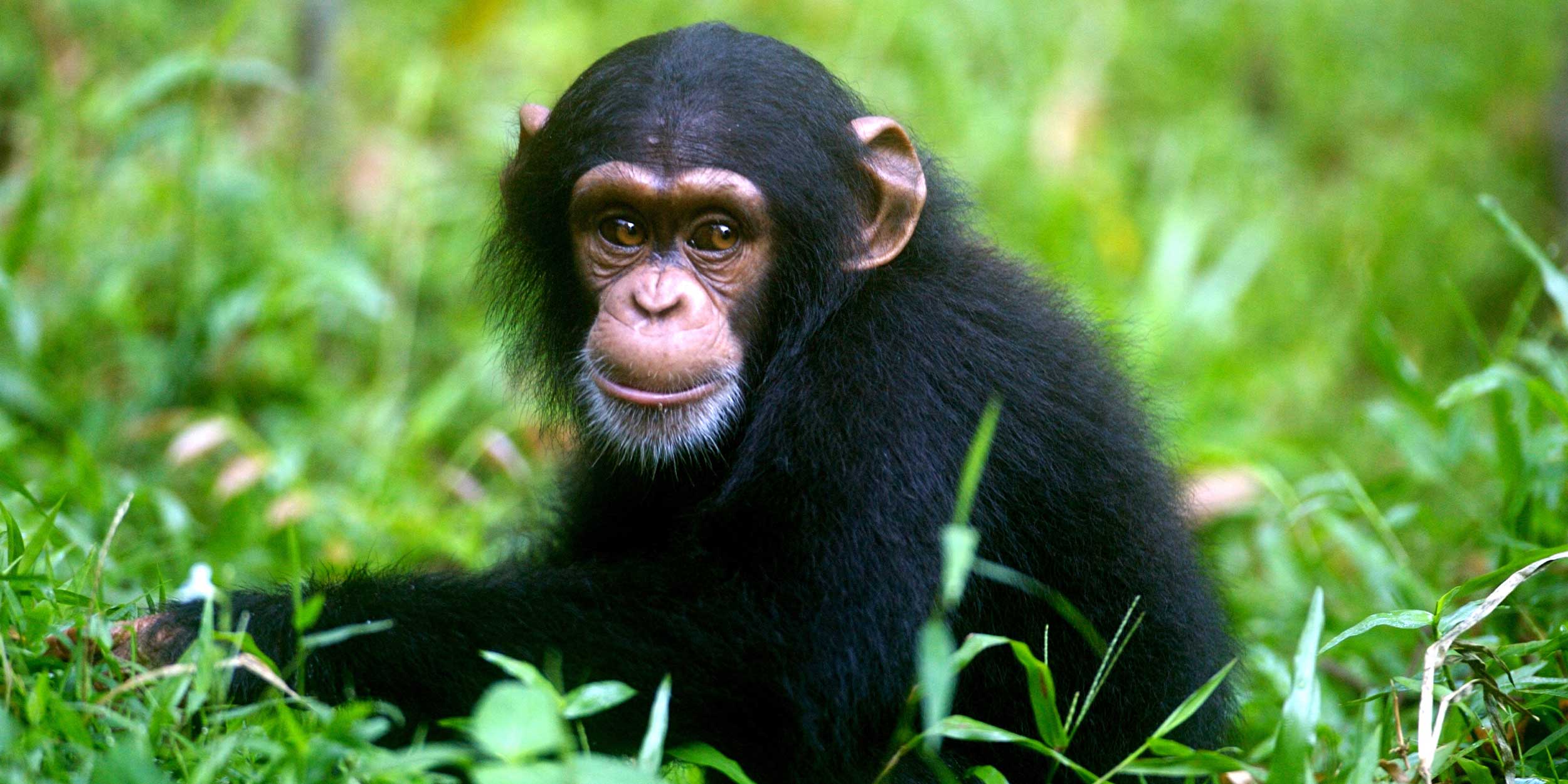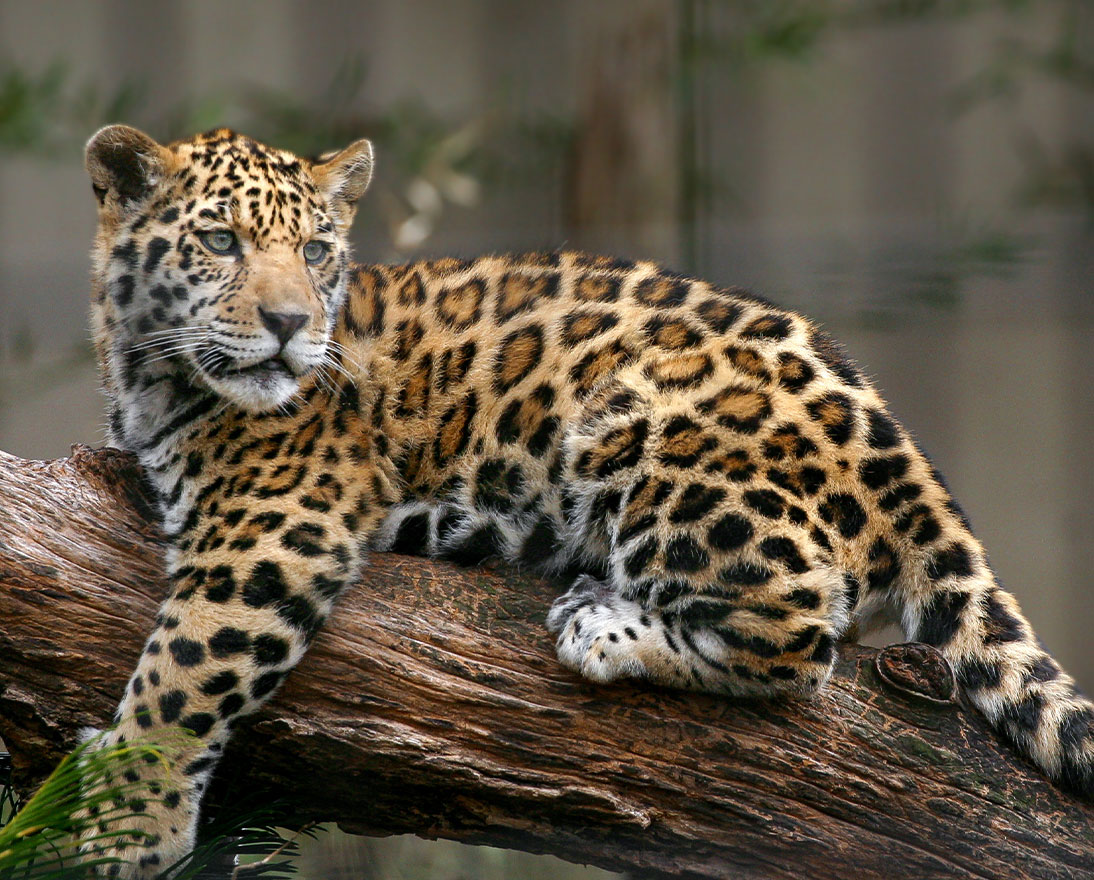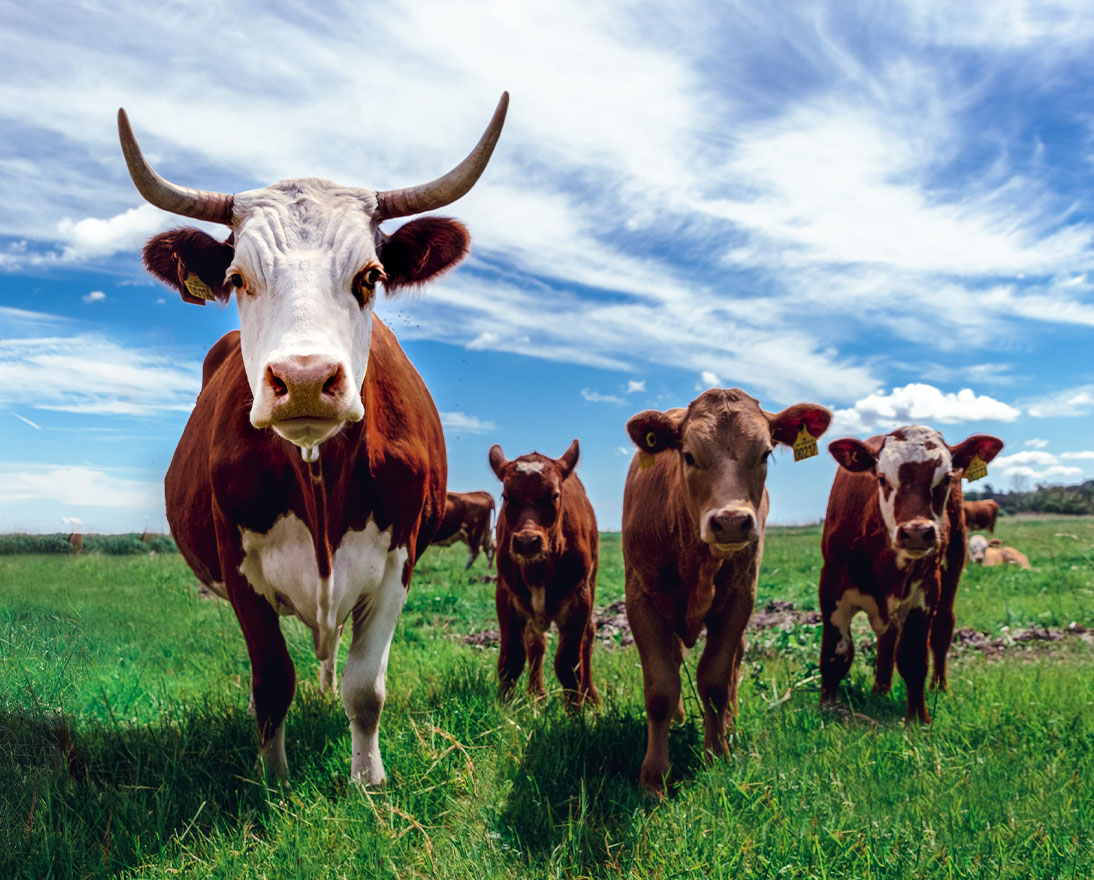Jane Goodall’s Greatest Hits
SustainabilityArticleFebruary 2, 2022
The primatologist and environmentalist may be pals with Dave Matthews, but she’s a rock star in her own right and lit up our first Zurich Talks event. Here are some essential moments from her extraordinary life
She observed chimpanzees fish termites from a nest with twigs, hunt monkeys in the forest and even witnessed the apes wage war against each other. Pioneering primatologist Dr. Jane Goodall redefined what it means to be human, and what it means to be an ape, during her decades-long study of chimps in Tanzania.
The 87-year-old environmentalist joined Zurich Insurance Group (Zurich) to explore our relationship with the planet in the first installment of Zurich Talks, a four-part discussion series produced in partnership with CNBC. The shows will bring together leading thinkers and business executives to discuss the most pressing issues of the day, such as mental health and innovation.
“Besides being the leading primatologist of her time, Jane Goodall’s brilliance spans many fields,” says Linda Freiner, Group Head of Sustainability at Zurich. “For me, her work on preserving the environment and fighting climate change has been nothing short of heroic. She should be a role model for all of us.”
In the episode “Future Planet,” Zurich Group Chief Executive Officer Mario Greco engaged in a candid dialogue with Goodall, a leading advocate for preserving the environment, about what we can all do to fight climate change and protect our natural habitat.
Here are seven facts you need to know about our star guest. (And yes, she’s pals with Dave Matthews!)
- It all started with a stuffed chimpanzee. When Goodall was a child, one of her favorite toys was a stuffed chimp named Jubilee, as she detailed in her 2000 book Reason for Hope: A Spiritual Journey. “My mother’s friends were horrified by this toy, thinking it would frighten me and give me nightmares,” she wrote. “But Jubilee instantly became my most cherished possession and accompanied me on nearly all of my childhood adventures.” Born in London in 1934, the young Goodall was also enamored with stories about wild animals, especially The Story of Dr. Dolittle and the Tarzan books.
- Goodall was the first person to discover that chimpanzees make and use tools – specifically tools for fishing termites from a nest. The discovery shook the scientific community and redefined the relationship between humans and animals. Up until that revelatory moment in 1960, scientists thought humans were the only species to make and use tools.
- David Greybeard, Frodo and Fifi. These were just some of the names Goodall gave to the chimpanzees she studied in Gombe, Tanzania, breaking with the convention of assigning numbers to objects of scientific study. While in Gombe, Goodall immersed herself in their habitat as a neighbor rather than a distant observer. In 1977, she established the Jane Goodall Institute, which, according to the organization’s website, continues the research at Gombe and builds on her innovative approach to conservation, which recognizes the central role that people play in the well-being of animals and the environment.
- Her Roots & Shoots organization seeks to empower everyone to be an activist. The grassroots movement founded in 1991 encourages young people (and their mentors) around the world to effect positive change in their communities, whether that’s tagging migrating monarch butterflies or protecting mangroves. “Being a part of Roots & Shoots means standing up and taking action to solve problems in your community,” its website states.
- Her latest book, The Book of Hope: A Survival Guide for Trying Times, has just been published. In it, she’s asked by co-author Douglas Abrams how she defines hope to which she replies: “Hope is what enables us to keep going in the face of adversity. It is what we desire to happen, but we must be prepared to work hard to make it so.” Goodall’s other books include two overviews of her work in Gombe and the aforementioned Reason for Hope, her best-selling memoir. She has also written children’s books, including Chimpanzees I Love: Saving Their World and Ours.
- Goodall is a tireless advocate for the environment. She does three virtual lectures or interviews a day from her home in Bournemouth, England, according to the cover story on Goodall in the Oct. 11/Oct. 18 issue of Time magazine. “Something about her – her enthusiasm, the brightness of her eyes, the detail in her unusual experiences – leaves readers and audiences feeling hopeful that it’s possible, with enough effort, for us to save the planet, and ourselves, from environmental destruction”, wrote Ciara Nugent, the author of that cover story.
- The environmentalist appears regularly on a wide-range of shows, from TED Talks to her own podcast The Hopecast, where her pal Dave Matthews, the musician, has been known to drop by, to even more mainstream fare such as The Tonight Show. In September, while discussing climate change with host Jimmy Fallon, she said, “Young people have understood what’s happening...and they’re taking action and saying, ‘This is our future, and we’re going to do something about it.’ And they are.”
Zurich Talks underscores our ambition to become one of the most responsible and impactful businesses in the world. To find out more about upcoming shows and speakers, visit Zurich Talks or follow us on Twitter @Zurich.



